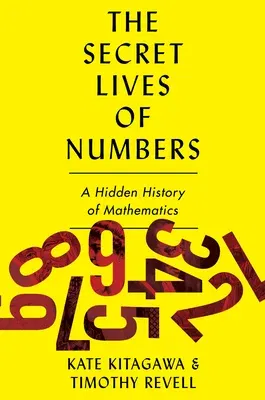A new history of mathematics focusing on the marginalized voices who
propelled the discipline, spanning six continents and thousands of years
of untold stories.
Mathematics shapes almost everything we do. But despite its reputation
as the study of fundamental truths, the stories we have been told about
it are wrong--warped like the sixteenth-century map that enlarged Europe
at the expense of Africa, Asia and the Americas. In The Secret Lives of
Numbers, renowned math historian Kate Kitagawa and journalist Timothy
Revell make the case that the history of math is infinitely deeper,
broader, and richer than the narrative we think we know.
Our story takes us from Hypatia, the first great female mathematician,
whose ideas revolutionized geometry and who was killed for them--to
Karen Uhlenbeck, the first woman to win the Abel Prize, "math's Nobel."
Along the way we travel the globe to meet the brilliant Arabic scholars
of the "House of Wisdom," a math temple whose destruction in the Siege
of Baghdad in the thirteenth century was a loss arguably on par with
that of the Library of Alexandria; Madhava of Sangamagrama, the
fourteenth-century Indian genius who uncovered the central tenets of
calculus 300 years before Isaac Newton was born; and the Black
mathematicians of the Civil Rights era, who played a significant role in
dismantling early data-based methods of racial discrimination.
Covering thousands of years, six continents, and just about every
mathematical discipline, The Secret Lives of Numbers is an immensely
compelling narrative history.

